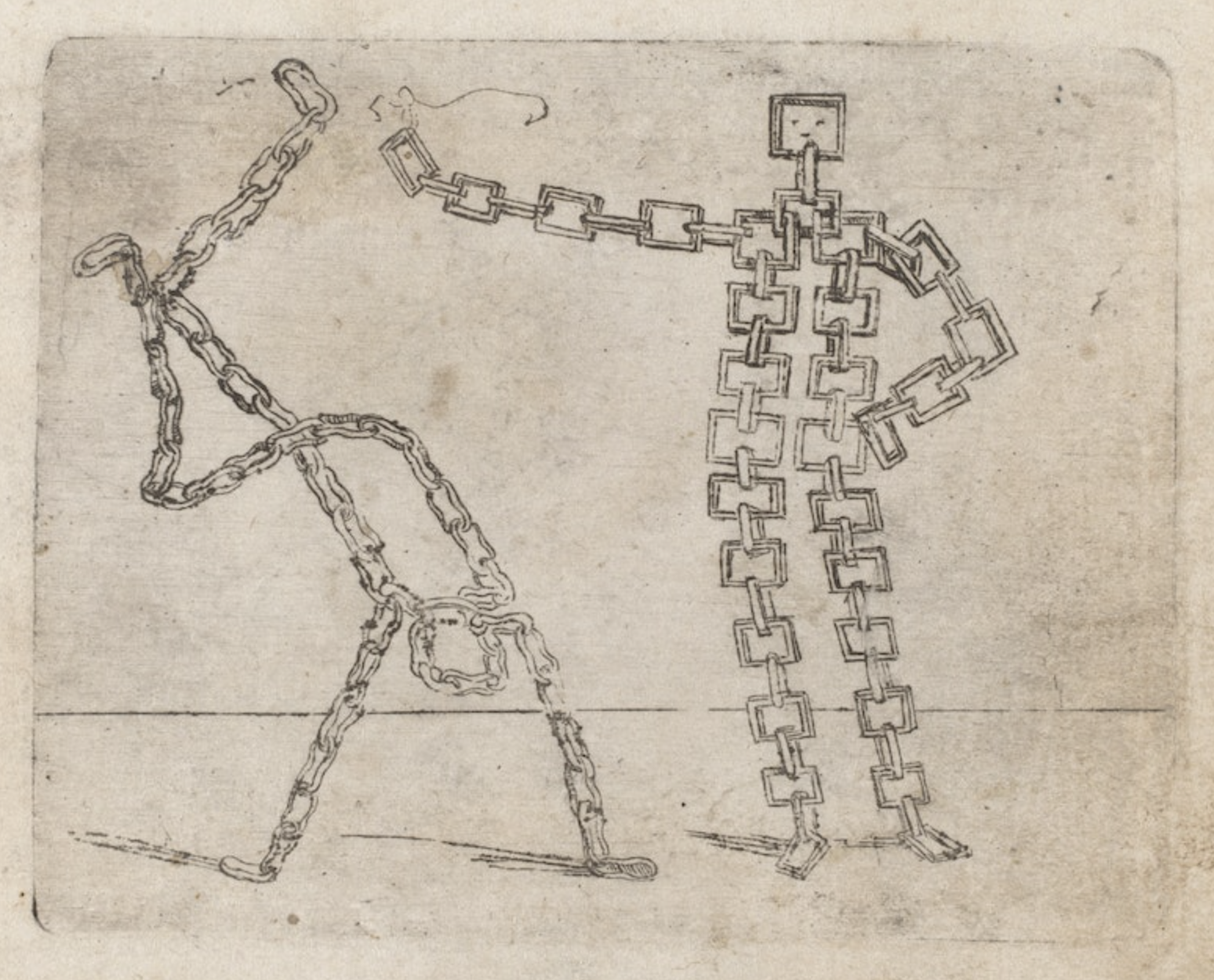Fork
Bizzarie di Varie Figure (1624), Giovanni Battista Bracelli
Mason Rothschild April 20, 2024
"Language keeps me locked and repeating", shouts Ian MacKaye over and over again in the Fugazi song ‘Stacks’. The mantra is raging against the profound influence of language on our perception of reality.
Words are a kind of magic, they are spells that shape our understanding of the world. In our infancy, we are tiny explorers, eager to touch everything and put all of it in our mouths, attempting to grasp existence itself. But without language, we do not have containers for the concepts and ideas we meet and so we thrash and flail and cry. As we mature, we gain the ability to comprehend objects and their permanence. We learn that the sounds emanating from our mouths can represent these objects, and that written symbols can represent both these sounds and ideas. We join these foundational elements together and form a framework of understanding.
Our understanding of the world is not static. Where at first we remain malleable in our definitions and concepts, as we grow up we create a dictionary in our minds and solidify the meanings of words with a sense of certainty. We are beings with linear timelines, born and destined to die, with limited time to allocate and we cannot endlessly dive into the meaning of each word. At a point we must say we know, and move on.
Consider the word ‘fork’. I know that a fork can be made of various materials: metal, wood, plastic. I know that a giant six foot fork is kind of funny to me. I know that one can ineffectively eat soup with a fork. Imagine that I then take these pieces of knowledge, peel open the top of a little brick shaped box in my mind and put everything I know ‘fork’ to be in there. At some point I'm not learning what fork means anymore and I close that little box up and place it on the ground. I stack up more little bricks full of definitions and pretty soon I'm in a house. This house is my reality.
“Our realities are constructed from the definitions we gave to objects, places and ideas. Each symbol in our mind is a cornerstone in the architecture of our personal reality.”
Reality is subjective. We may both gaze upon a flower, but what we truly experience is our own interpretation of what a flower means. We’ve already closed the flower box. Unless we revert back to a state of childlike wonder, allowing the flower's form, color, and scent to wash over us as if for the first time and shove it in our mouths to discover what it is, we merely project our preconceptions onto it. Our realities are constructed from the definitions we gave to objects, places and ideas. Each symbol in our mind is a cornerstone in the architecture of our personal reality.
Yet, while this mode of boxing works well for something like ‘fork’, what's a little terrifying is that ‘love’ occupies the same symbolic space. We enshrine our understanding of love within a mental container and fill it with images of fairy tale romances, our parents' failed marriages, some Beatles lyrics, and poetic verses and then we shut the little box and move on.
In doing so, we condemn ourselves to stay locked and repeated in our understanding of complex and malleable concepts. If our fairytale, Beatles, poetic type love should fail to show up in our lives, we fail to see the other ways we might love and be loved. The solution is simple – We possess the power to deconstruct our reality by deconstructing our definitions. Though the process may be messy, intentional dismantling allows us to become architects of our own existence. We are the magicians, wielding the simple act of focusing intention to shape our world. Thy will be done! We have the agency to change our understanding and relationship with the concept of love, and in doing so realize the love we have and the love we need. We don’t have to open up every word. It may serve us to have a closed box around ‘fork and it may not be so with Love. At least the Greeks had eight words for love. We English speakers have but one and we lock it up quick.
Examining what is going on behind our curtains provides more usefulness than not. Let’s lay around and open some boxes, and paint pictures, and put things in our mouths.
Mason Rothschild is a reformed touring fool turned occultant obsessed with contributing to the evolution of the collective human vision as we look away from accumulation and toward community.


